Recent Water Damage Posts
Professional vs. DIY Water Damage Cleanup - What's Best for You?
1/16/2024 (Permalink)
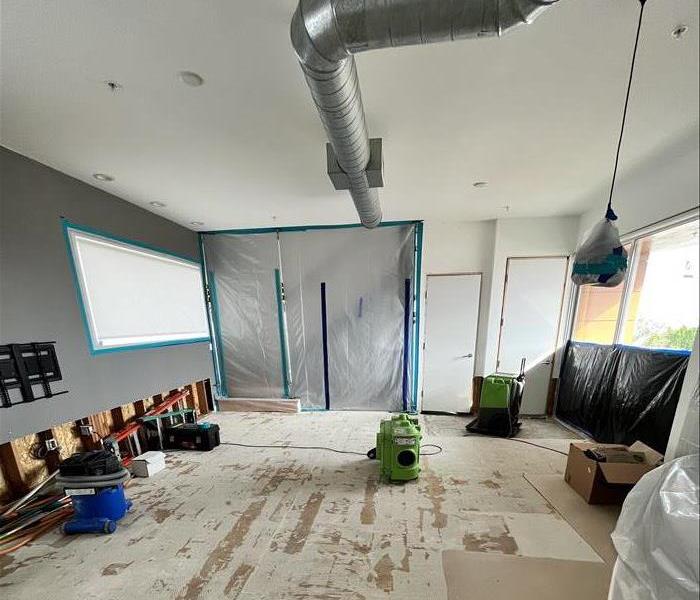 In this blog, we'll delve into the pros and cons of DIY water damage restoration versus hiring professional services.
In this blog, we'll delve into the pros and cons of DIY water damage restoration versus hiring professional services.
Water damage can strike unexpectedly, causing stress and chaos in your home or business. Whether it's from a burst pipe, a leaky roof, or a flood, the aftermath of water damage requires immediate attention. When faced with this situation, many people grapple with the decision: Should they tackle the restoration themselves or seek professional help?
In this blog, we'll delve into the pros and cons of DIY water damage restoration versus hiring professional services. Understanding the nuances can help you make an informed decision that safeguards your property and minimizes potential risks.
DIY Water Damage Restoration
The allure of handling water damage restoration on your own lies in the potential cost savings and the convenience of immediate action. DIY enthusiasts might consider extracting water, drying affected areas, and sanitizing spaces with readily available tools and techniques. However, there are crucial aspects to consider before embarking on this path:
Pros:
- Cost: DIY restoration can save money initially as you won't incur professional service fees.
- Immediate Action: You can start addressing the issue right away without waiting for service scheduling.
- Control and Involvement: You have full control over the restoration process and can ensure it meets your standards.
Cons:
- Limited Expertise: Lack of professional knowledge and equipment may result in incomplete restoration, leading to hidden moisture pockets and potential mold growth.
- Potential Risks: Mishandling electrical appliances or structural components can pose safety hazards.
- Time and Effort: The extensive process of water extraction, drying, and sanitizing can be time-consuming and physically demanding.
Professional Water Damage Restoration Services
Engaging professional water damage restoration services brings with it a level of expertise and efficiency that DIY methods may lack. Here are the key advantages and considerations:
Pros:
- Expertise and Equipment: Trained professionals possess the expertise, specialized tools, and advanced equipment to effectively handle water damage restoration.
- Comprehensive Solutions: Professionals conduct thorough assessments to identify hidden damage and provide comprehensive solutions, preventing future issues like mold growth.
- Time Efficiency: Professional services streamline the restoration process, saving time and minimizing disruption to your daily life.
Cons:
- Cost: Professional services typically come with a cost, which might be perceived as higher than the DIY approach.
- Dependency: You'll need to coordinate with the service provider's schedule, which might not offer immediate action in some cases.
Making the Right Choice
Choosing between DIY water damage restoration and professional services hinges on several factors: the extent of damage, your expertise, time constraints, and budget considerations. While DIY efforts might seem cost-effective initially, they can potentially lead to incomplete restoration and long-term issues.
On the other hand, professional services ensure a thorough, efficient restoration process, reducing risks and protecting your property effectively. Consider the trade-offs between cost, time, expertise, and the importance of comprehensive restoration before making your decision.
At SERVPRO of Loveland, we understand the stress and challenges that water damage brings. Our team of trained professionals is equipped to handle any scale of water damage restoration efficiently and effectively.
Flood Damage vs. Water Damage: Understanding the Differences
10/24/2023 (Permalink)
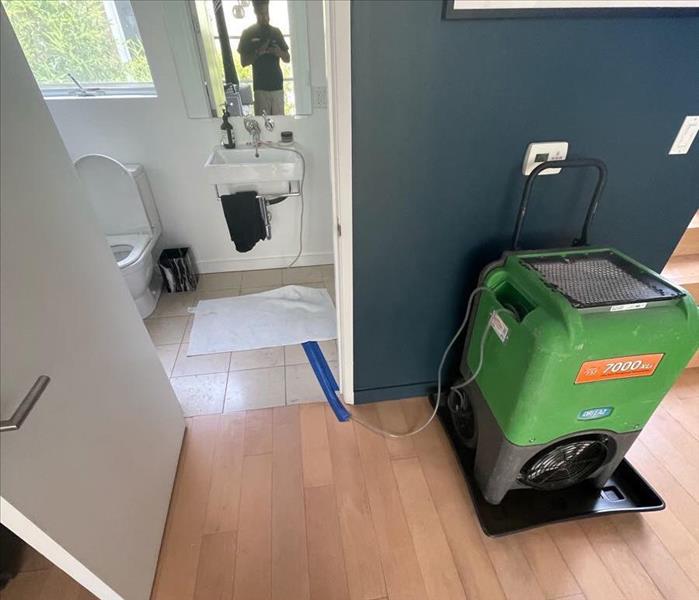 The restoration process for flood damage and water damage may also vary.
The restoration process for flood damage and water damage may also vary.
Water damage can occur in various ways, but two of the most common terms used are "flood damage" and "water damage." While they may seem interchangeable, there are key differences between the two that homeowners should be aware of. In this blog post, we will explore the distinctions between flood damage and water damage to help you understand the implications and necessary actions for each scenario.
Source of Water
The primary difference between flood damage and water damage lies in the source of the water. Water damage typically refers to damage caused by internal water sources, such as burst pipes, leaking appliances, or plumbing issues within the home. On the other hand, flood damage refers to water intrusion from external sources, such as natural disasters (heavy rain, hurricanes, river overflow) or external flooding due to issues like drainage problems or rising groundwater levels.
Scale of Damage
Flood damage is usually associated with more extensive and widespread damage compared to water damage. Floodwater can rapidly enter a property and affect multiple rooms or even entire structures. It can lead to severe structural damage, ruin personal belongings, and introduce contaminants into the home. Water damage, although it can still be significant, is typically localized to specific areas or rooms affected by the internal water source.
Contamination Levels
Floodwater is often considered more hazardous and contaminated compared to water damage caused by internal sources. Floodwater can contain various pollutants, including sewage, chemicals, debris, and bacteria, posing significant health risks. On the other hand, water damage from internal sources, while still potentially damaging, generally does not introduce the same level of contamination into the living environment.
Insurance Coverage
Insurance coverage for flood damage and water damage may differ, depending on the type of insurance policy homeowners have. Most standard homeowner's insurance policies typically cover water damage caused by internal sources, such as burst pipes. However, flood damage is not typically covered by standard homeowner's insurance and requires a separate flood insurance policy. Understanding your insurance coverage and considering additional coverage for flood damage is crucial to ensure appropriate protection in different scenarios.
Restoration Process
The restoration process for flood damage and water damage may also vary. Flood damage often requires more extensive remediation and restoration efforts due to the scale of damage and potential contamination. It may involve water extraction, disinfection, drying, mold remediation, structural repairs, and content restoration. Water damage restoration, while still requiring prompt action, may involve localized drying, repairs, and addressing any affected areas.
Distinguishing between flood damage and water damage is essential for homeowners to understand the implications, necessary actions, and insurance coverage associated with each type. While water damage is typically caused by internal sources and may be covered under standard homeowner's insurance, flood damage stems from external sources and often requires additional flood insurance. The scale of damage, contamination levels, and restoration processes also differ significantly between flood damage and water damage. By knowing these distinctions, homeowners can be better prepared to respond to different scenarios and protect their homes in the event of water-related incidents.
What To Do If The Fire Sprinklers Accidentally Go Off?
3/15/2023 (Permalink)
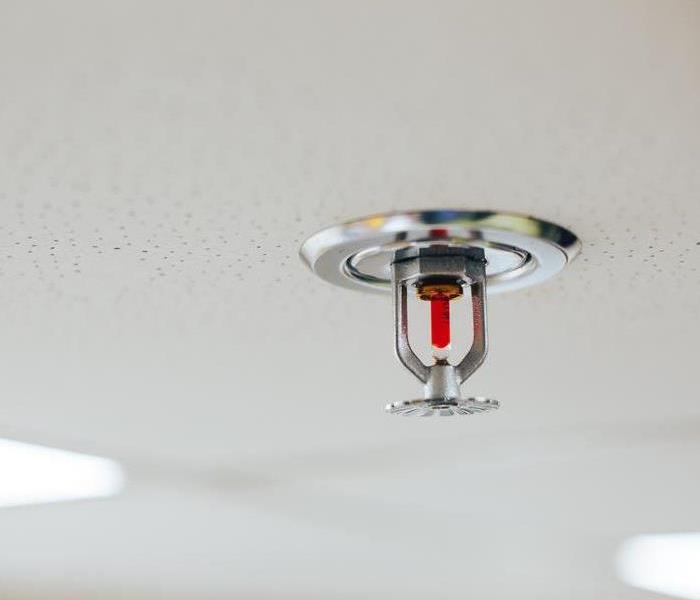 If you experience a water loss after an accidental fire sprinkler accident, give SERVPRO a call today!
If you experience a water loss after an accidental fire sprinkler accident, give SERVPRO a call today!
Fire sprinklers are an important safety feature in many buildings. They are designed to automatically detect and extinguish fires, helping to protect both people and property. However, on rare occasions, sprinkler systems can malfunction, causing the sprinklers to go off accidentally. If you find yourself in this situation, it is important to know what to do to minimize the damage and ensure your safety. In this blog post, we will discuss what steps to take if the fire sprinklers go off accidentally.
Step 1: Evacuate the Building
The first and most important step is to evacuate the building immediately. Even if the sprinklers have gone off accidentally, there may still be a fire or other hazardous conditions present. Follow the emergency evacuation procedures for the building and exit as quickly and safely as possible.
Step 2: Call the Fire Department
Once you are safely outside the building, call the fire department to report the incident. Even if there is no fire, it is important to let the professionals handle the situation. They can inspect the building to make sure there are no other hazards present and turn off the sprinkler system.
Step 3: Document the Damage
If possible, document any damage caused by the sprinklers. Take pictures or video of the affected areas and make note of any damage to furniture, electronics, or other items. This documentation may be necessary if you need to file an insurance claim.
Step 4: Contact the Building Owner or Manager
If you are a tenant in the building, contact the building owner or manager to report the incident. They will need to be aware of the situation and may need to coordinate repairs or cleanup efforts.
Step 5: Clean up the Water
Once the sprinklers have been turned off, you will need to clean up any water that has accumulated. Use a wet-dry vacuum or mop to remove as much water as possible, and set up fans or dehumidifiers to help dry out the affected areas. If you are unable to handle the cleanup yourself, contact a professional restoration company to assist you.
Step 6: Prevent Future Accidents
Finally, take steps to prevent future accidents. Have the sprinkler system inspected and serviced regularly to ensure it is functioning properly. Keep flammable materials away from sprinkler heads and make sure the system is not obstructed by furniture or other items.
In conclusion, if the fire sprinklers go off accidentally, it is important to act quickly and safely. Evacuate the building, call the fire department, document any damage, contact the building owner or manager, clean up the water, and take steps to prevent future accidents. By following these steps, you can minimize the damage and ensure the safety of everyone involved.
Content Cleaning After a Water Loss
11/7/2022 (Permalink)
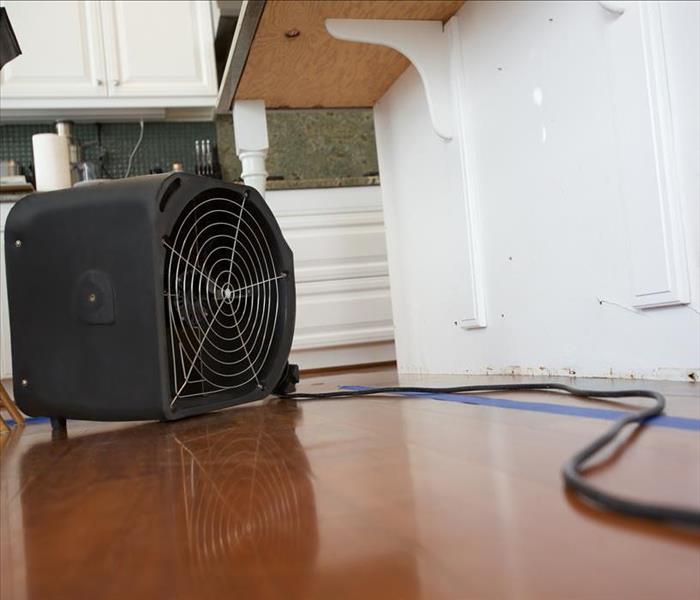 Fans are another option for drying out your home after a flood.
Fans are another option for drying out your home after a flood.
How To Clean Up After a Water Loss
The aftermath of a water loss can be devastating. You might not know where to start, but don’t worry, we’re here to help! If you need professional help in cleaning and restoring your Loveland, CO home after an unexpected flood or burst pipe, our team of restoration experts is ready for the call. In this blog post, we’ll cover how to clean up after a water loss and some steps you can take before calling a professional.
Separate Items
The first step in the process is to separate damaged items from non-damaged ones. Damaged items should be placed in a pile for further cleaning and drying, while non-damaged ones can be returned to their proper places.
If you do not know whether an item is damaged, use the "five-foot rule": if you can't tell whether something is damaged when it is five feet away, then it's probably safe to assume that it is not damaged by the flood water itself.
Contact Insurance
When you contact your insurance company, ask how the damage should be cleaned up. Your policy might require that you contract a professional to clean up the water and dry out your home before filing a claim. If you are unsure of what is covered in your policy, call or email your agent or company representative and ask them directly if they will cover any of the costs associated with cleaning up after a flood.
Drying Takes Time
It is important to understand that the drying process takes time. The amount of time it takes depends on many factors, including:
- How much water was in the building before you came in
- How quickly you get rid of the water
- How humid and cold it was outside during and after your clean up
Cleaning and Sanitizing
Clean and sanitize the area. Use a disinfectant or cleaning solution to remove dirt, dust, and other debris from the area. After you're done using a disinfectant, rinse it off with water and wipe down the area with a clean cloth to dry it completely.
Dry the area completely. Dehumidifiers can help speed up this process by pulling moisture out of the air (but don't use them if they get too hot!). Fans are another option for drying out your home after a flood; just be sure not to use them in an enclosed space like an attic or crawlspace since they could spread mold spores throughout your house.
Check for mold and mildew growth and treat accordingly!
Call SERVPRO of Loveland
After a water loss, you should call in the professionals at SERVPRO to help you mitigate and restore your home or business. There are several reasons why this is so important:
- You could make the situation worse by trying to clean up the mess yourself.
- Vacuuming can spread water damage, so it's not recommended.
- A wet/dry vacuum could also spread contamination because they have no filters that trap dirt and debris as regular vacuums do.
- Hair dryers shouldn't be used either because they use heat that could cause damage to your belongings.
If you have experienced a water loss, SERVPRO of Loveland can help. SERVPRO of Loveland has the equipment and expertise to respond quickly and thoroughly clean your property after water damage.
SERVPRO of Loveland professional cleaners remove mold and mildew from your home or business. They will also ensure that any structural repairs are done by professionals, such as a drywall contractor or electrician. The team at SERVPRO of Loveland understands that the effects of water damage can be devastating for families, so they try their best to mitigate the impact on your life as much as possible by providing assistance through insurance companies and helping in any way possible until everything is back to normal again.
There are many factors to consider when trying to restore your home after a water loss. The most important thing is that you work with an experienced restoration company that understands your needs. They will be able to help you restore your belongings, clean up the damage and make sure everything goes back together in exactly the right way so you can get back on track quickly.
It Is Time To Replace Those Polybutylene Pipes
6/27/2022 (Permalink)
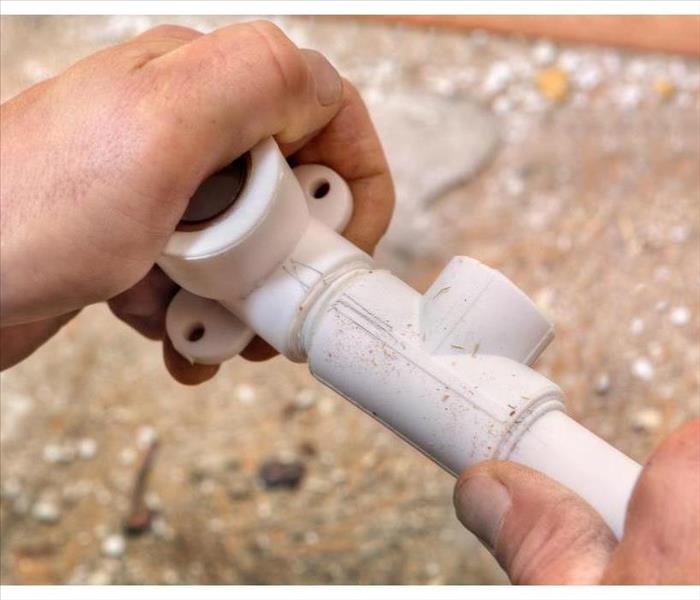 Are you aware of what plumbing material your property has?
Are you aware of what plumbing material your property has?
Are you aware of what plumbing material your property has? As a business owner in Loveland, CO, you need to find out. Depending on the age of the building, it may have polybutylene pipes. Below, you will learn what this piping is, why you need to replace it, and what hazards develop if you don’t.
What Are Polybutylene Pipes?
Between the 1970s and the 1990s, this inexpensive plastic piping was installed in millions of properties because it was easy to install, freeze-resistant, and flexible. Unfortunately, reports of property damage emerged due to a major flaw in the material: it is not durable. The material is vulnerable to chemicals, like chlorine, routinely used in water treatment systems, which leads to fractures, cracks, holes, and ruptures.
What Are Important Considerations For New Plumbing?
The following is a list of reasons to replace the plumbing now before it becomes a problem:
- It will fail and require replacement eventually.
- Property damage from faulty plumbing can be expensive and extensive.
- Many insurance companies don’t cover polybutylene piping.
- United States building codes don’t recognize this type of piping.
What Happens If You Don’t Replace It?
If you haven’t already, you will incur water damage from cracking and failing pipes, wreaking havoc in your building. Plumbing runs through the ceilings, walls, and flooring; structural damage can be all-encompassing. Leaking or burst pipes can cause floors to warp, wood to break down and rot, drywall to weaken, and mold to grow and spread.
If your building has suffered a rupture or flood already, immediately contact water restoration specialists. They will assess the damage and begin cleaning and restoring the property damage to maintain the integrity of your building. It is important to begin restoration quickly, yet you still need to contact a plumbing company to address the root cause of faulty piping.
It may seem like a hefty undertaking, but refitting a building’s plumbing system will save you time and money before an emergency strikes. Replacing the faulty piping will reestablish your property’s reliability and stability for decades to come.
3 Simple Ways to Prevent Flooding While You Are Gone on Vacation
3/27/2022 (Permalink)
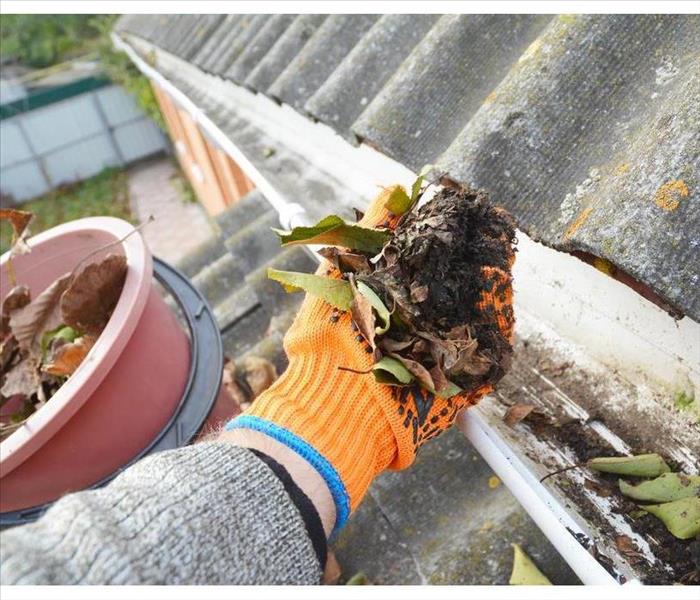 Keep your gutters clean.
Keep your gutters clean.
Three Easy Ways to Keep Your Home from Flooding While You're Away
When you go on vacation, you should not have to worry about a thing. While many people will wonder periodically whether they forgot to turn off the stove, there is a much bigger problem to be concerned about: flooding. A broken pipe in Loveland, CO necessitates immediate water pipe repair, but if you will be gone for weeks, then water will continue to stand and accumulate more bacteria. Here are three easy things to take care of before you depart.
1. Empty Gutters
The purpose of gutters is to direct rainwater away from your actual home so that it does not flood the foundation. When the gutters accumulate too much debris, they can burst from the pressure. This causes water to go directly down the siding, which can peel paint and cause other problems. Before leaving, spend 30 minutes clearing out the gutters and downspouts.
2. Unplug Appliances
You do not want to risk dealing with a flooded dishwasher or washing machine when you are gone that requires immediate water pipe repair. Unplug and turn off these machines before you leave. If you will have someone coming over to check on your house while you are on vacation, then make sure to inform this guest about which appliances cannot be used.
3. Inspect the Outside of Your Property
If rain is on the forecast in your area, then you want to inspect the exterior of your home to see if there are any weak points rainwater could enter through. In the event you do find something, then you will want to hire a professional service to come out before you leave to address any problem spots. You also want to take the overall temperature into consideration while you are away. If it is going to get exceedingly cold in Loveland, CO, then you want to prevent the need for water pipe repair to fix frozen pipes.
Business Insurance Is a Lifesaver When Recovering From Water Damage
3/6/2022 (Permalink)
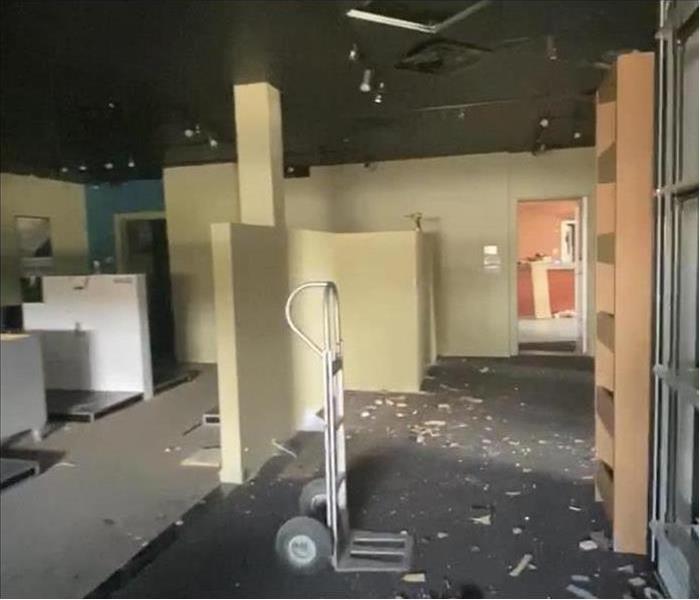 Water restoration services in Loveland, CO.
Water restoration services in Loveland, CO.
Three Reasons To Invest In Business Insurance
When saturation impacts commercial property, an owner may feel lost and exasperated trying to pick up the pieces. The premises are in danger of developing mold, rot and structural deterioration; thus, the exposure and lingering water damage demand prompt and methodical care to ensure the establishment in Loveland, CO, can reopen, free of hazards. Business insurance may be the lifeline needed to stay in operation and survive the repairs.
1. Receive Necessary Financial Support
Proprietors may face complete building overhauls. Remediation includes tearing out walls and flooring, purifying the air and vent system and tending to the source of trouble. The entire space must be disinfected and dried. These tasks add up to thousands of dollars, which owners may not have immediate access to. Many insurance policies cover the harm broken pipes caused. Owners pay a deductible amount; insurance, then, fronts the cost for everything else (within the coverage range). Also, merchandise and electronics may be harmed. Personal loss coverage allows for a check to replace or salvage these items.
2. Secure Authorized, Certified Assistance
Water damage treatment isn't easy, and inadequate cleanup could lead to future complications and additional bills. The insurer insists on proper methods, including the hiring of a reputable, certified water remediation company. The experts hold IICRC credentials, national professional standards, which layout a framework for meticulous care. In addition, Commercial Drying Specialists investigate the impacted sections. These workers have taken additional classes to understand the best processes to dry and sanitize the space. They can organize an effective plan and determine which technology to use to air out the area.
3. Enjoy Backup Reviews
Water cleanup errors or missteps could permit mold to grow or structures to fail. The insurer looks over the bills, damages and estimates to see that all necessary steps occur. An extra set of eyes is supported to avoid more issues.
Business insurance policies alleviate tension from financial costs and massive restoration projects. Having it to help with water damage is an absolute must.
Don’t Ignore Your Noisy Pipes
2/10/2022 (Permalink)
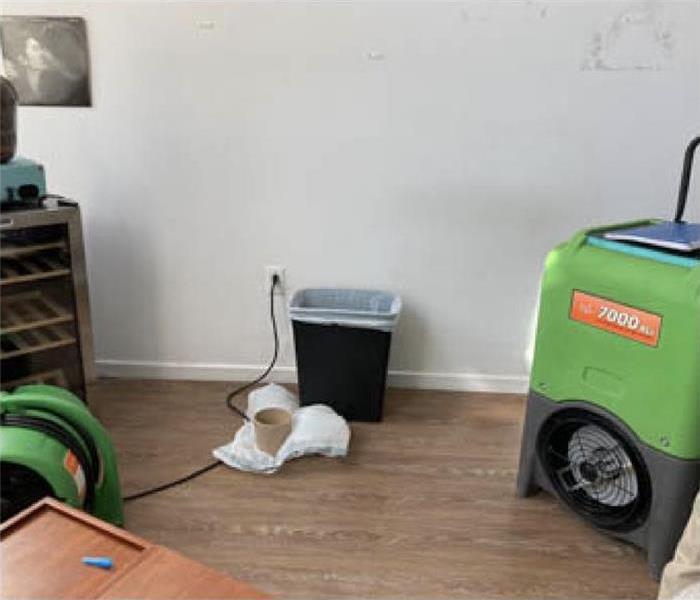 A bursting pipe can cause serious damage in your property.
A bursting pipe can cause serious damage in your property.
Your Noisy Pipes Shouldn't Be Ignored
If your home has noisy pipes, it’s more than a simple annoyance. Whistling or banging sounds can be an indication of issues that will need to be addressed before a pipe break occurs. In the event that a rupture does occur, what should you do? When your lines are making strange sounds in Loveland, CO, it’s important to understand the possible cause and correct any problems as soon as possible to avoid further damage.
Investigate the Source of the Noise
Different sounds are an indication of various maladies that could cause a pipe burst:
• Whistling, or squealing, is an indication that the water in the line is being forced through an obstacle or restricted opening. This could be caused by a loose screw, degraded washer or other component that needs to be repaired or replaced.
• Banging noises, also known as hammering, are caused by a sudden stoppage in water flow within the line. If your home has loose pipes, this may cause them to vibrate or bang against things, causing pipe break.
If you’re still unsure what could be causing the sounds you may be hearing, reach out to a licensed plumber for assistance.
What to Do When a Pipe Fails
Unfortunately, breakages occur from time to time. If you experience a ruptured pipe in your home, it’s important to contact a trusted professional to fix the broken pipe immediately in order to stop leakage. You’ll also need the services of reliable cleanup and restoration specialists who can address standing water before further structural damage can occur. Luckily, there are plenty of professional resources in Loveland, CO, that are just a phone call away.
Regardless of the age of your home, it’s important to investigate any noises that may be originating from your water lines so you can avoid potentially catastrophic pipe break and subsequent flooding. A little diligence and regular maintenance can help to save you stress, and cash, down the road.
 In this blog, we'll delve into the pros and cons of DIY water damage restoration versus hiring professional services.
In this blog, we'll delve into the pros and cons of DIY water damage restoration versus hiring professional services.


 24/7 Emergency Service
24/7 Emergency Service






